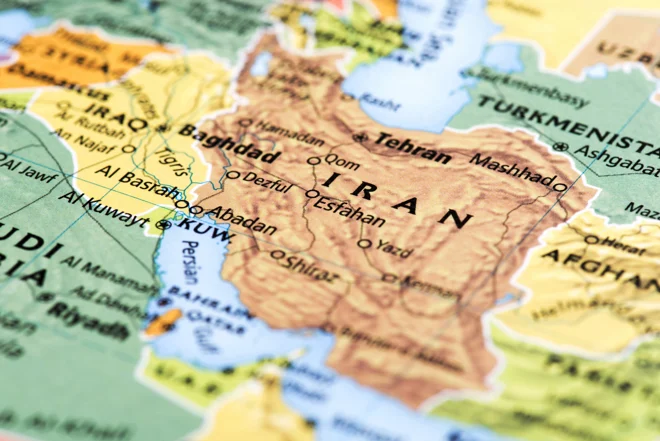From CCTV cameras to search engines, we live in a world under constant surveillance. Is the end of privacy the inevitable price of technological progress?
Pity George Orwell. Seven decades ago, when the British writer published his great dystopian novel, the public was stunned by his chilling vision of a future global totalitarian state, where the “Thought Police” kept constant watch on every individual through two-way “Telescreens.”
Once hailed as prophetic, 1984 has been outpaced by reality.
Today, we mostly shrug at mass surveillance, winking at the hundreds of millions of CCTV cameras now in operation worldwide, including more than 170 million in China alone. By 2020, according to that country’s government, another 400 million will be installed, supporting a national video surveillance network that, says Beijing, will be “omnipresent, fully networked, always working and fully controllable.”
Meanwhile, despite some legislation to the contrary, we also seem unbothered by ever-more-granular individual data collection.
We merrily “like” every other Facebook post, pay no heed to eerily well-targeted Google ads and install voice-activated Amazon assistants in our homes. We accept countless cookies every day, never bothering to read the fine print.
We’ve got nothing to hide, we figure, so why resist the march of technological progress? The end of privacy seems like a small price to pay for a greater sense of personal security – not to mention anywhere, anytime online shopping via apps that remember our shoe size and know we prefer blue to black.
The world’s most-populous nation is at the forefront of these trends.
In China, CCTV cameras on every corner are powered by advanced facial recognition software, including some that do not even need to register a face to identify an individual. In Beijing and Shanghai, authorities have recently begun deploying a new surveillance tool that can identify people by how they walk or the shape of their body. Watrix, the company that designed this system, claims to be able to identify people from up to 50 meters away, even when their back is turned or their face covered.
The Chinese are also leaders in voice recognition: iFlyTek, a Chinese artificial intelligence company with ties to state security, claims to be able to monitor a car or a room full of people, identify a targeted individual’s voice and record everything that person says. Why is China so far ahead of the pack? Privacy laws are far less stringent than in the West, giving companies access to reams of personal data. Close ties between the private sector and the government also help, including state support for research and development, alongside extremely robust fundraising.
Today, China has more unicorns – privately held companies valued at over $1 billion – than the US. And while Silicon Valley startups may raise fresh capital once every two years, it is not unusual for hot Chinese startups, including AI firms, to fundraise three to four times per year.
China hopes to build a $150 billion domestic artificial intelligence industry by 2030 as part of an effort to merge surveillance with what the Washington Post describes as a “database of information on every citizen, a ‘Police Cloud’ that aims to scoop up such data as criminal and medical records, travel bookings, online purchase and even social media comments – and link it to everyone’s identity card and face.”
It’s all part of a vast “Social Credit System,” expected to be up and running by 2020, whereby every individual will be ranked by a “social score.”
Big Data will meet Big Brother, and citizens will be ranked based on whether they have been naughty or nice. Penalties for bad behaviour, as judged by the state, may include exclusion from overseas travel, private schools, domestic hotels and certain employment opportunities – as well as, somewhat ironically, access to high-speed internet. Offenders will also be named and shamed on a public blacklist.
If that sounds unimaginably Orwellian to those of us in the West, think again. Or at least think different.
Facing the future
If the end of privacy sounds like an inevitability, there’s one factor that’s worth considering: the rise of sustainable, responsible and impact (SRI) investing. As of the end of 2017, one out of every four dollars invested in the United States – or a whopping $12 trillion – was invested according to SRI strategies.
At the same time, some 2,000 firms worldwide have signed the Principles for Responsible Investment, collectively representing an even more staggering $82 trillion in assets owned or under management.
In an age when socially responsible investing is more important than ever, the long-term growth of industries that erode individual liberty could, eventually, be jeopardised. While that’s not the case today, especially in markets such as China, societal trends are ultimately unpredictable – and they have a major influence on investor sentiment.
For now, however, there appears to be little reason to believe that the tide will turn. In our homes and workplaces, in our cars and on the streets, data about us is constantly collected and analysed. We are all tracked and traced, observed and identified, 24/7, in a way that even George Orwell would have found unimaginable.
Does the end of privacy matter? Future generations will decide.
Toby Vaughan
Chief Investment Officer
This article appears in our Global Investment Outlook 2019. An indepth look at the key trends and big ideas that will shape the global investment outlook over the next 12 months.



